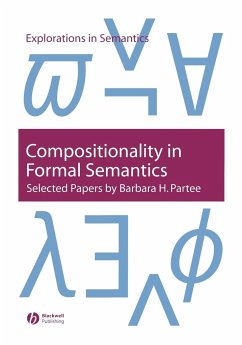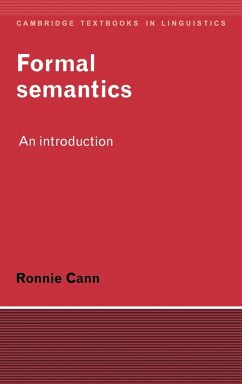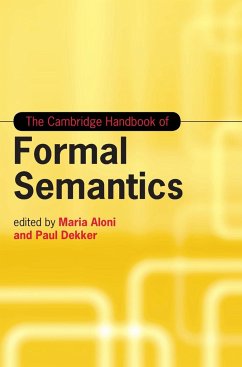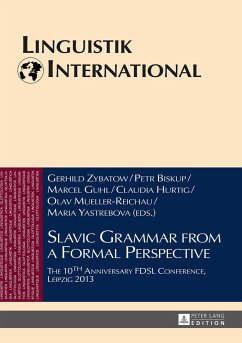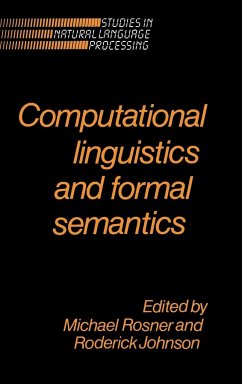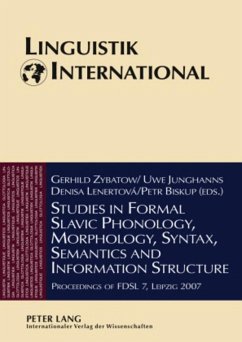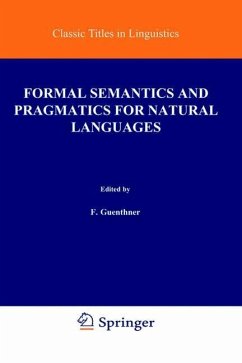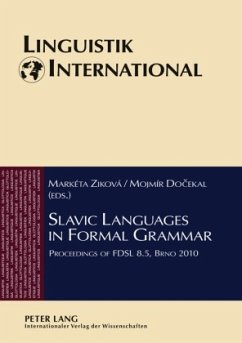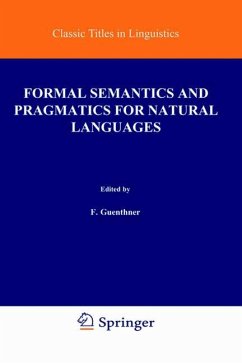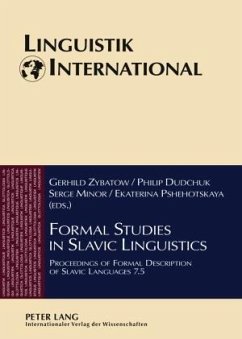
Broschiertes Buch
Formal Semantics
Versandkostenfrei!
Versandfertig in über 4 Wochen

PAYBACK Punkte
45 °P sammeln!





Formal Semantics: The Essential Readings is a collection of seminal papers that have shaped the field of formal semantics in linguistics.
.
.
Paul Portner is Associate Professor of Linguistics and Acting Director of the Interdisciplinary Program in Cognitive Science at Georgetown University. He is the author of numerous articles on topics such as mood and modality, tense and aspect, and the syntax/semantics interface. Barbara H. Partee is Distinguished University Professor of Linguistics and Philosophy at the University of Massachusetts, Amherst and is the author of several landmark essays in formal semantics. She has written and edited numerous books, including Mathematical Methods in Linguistics (with Alice ter Meulen and Robert Wall, 1990), Montague Grammar (edited, 1976), and Quantification in Natural Languages (edited, with Emmon Bach, Eloise Jelinek, and Angelika Kratzer, 1995).
Produktdetails
- Linguistics, The Essential Readings
- Verlag: Blackwell Publishers
- Seitenzahl: 496
- Erscheinungstermin: 11. Oktober 2002
- Englisch
- Abmessung: 244mm x 170mm x 27mm
- Gewicht: 855g
- ISBN-13: 9780631215424
- ISBN-10: 0631215425
- Artikelnr.: 13610233
Herstellerkennzeichnung
Libri GmbH
Europaallee 1
36244 Bad Hersfeld
gpsr@libri.de
"This volume contains a well-balanced selection of great papers covering fifteen vibrant years of semantic research. My own definition of a classic paper is a paper that is endlessly borrowed by students, but rarely returned. The papers in this volume all share the property that somewhere in the world somebody owns my copy of them. It s great to find them all collected here." Fred Landman, Tel Aviv University
"Truth-conditional semantics has its roots in the work of Frege and analytic philosophy, which was designed to overcome the vagueness, ambiguities, and dubious ontological commitments of natural language. Curiously, this intellectual tradition provided the very foundation for the serious study of meaning in natural language. This collection of seminal articles bears witness to this astonishing development; it should be essential reading for linguists and philosophers who are seriously interested in linguistic meaning." Manfred Krifka, Humboldt University
"Truth-conditional semantics has its roots in the work of Frege and analytic philosophy, which was designed to overcome the vagueness, ambiguities, and dubious ontological commitments of natural language. Curiously, this intellectual tradition provided the very foundation for the serious study of meaning in natural language. This collection of seminal articles bears witness to this astonishing development; it should be essential reading for linguists and philosophers who are seriously interested in linguistic meaning." Manfred Krifka, Humboldt University
Für dieses Produkt wurde noch keine Bewertung abgegeben. Wir würden uns sehr freuen, wenn du die erste Bewertung schreibst!
Eine Bewertung schreiben
Eine Bewertung schreiben
Andere Kunden interessierten sich für




